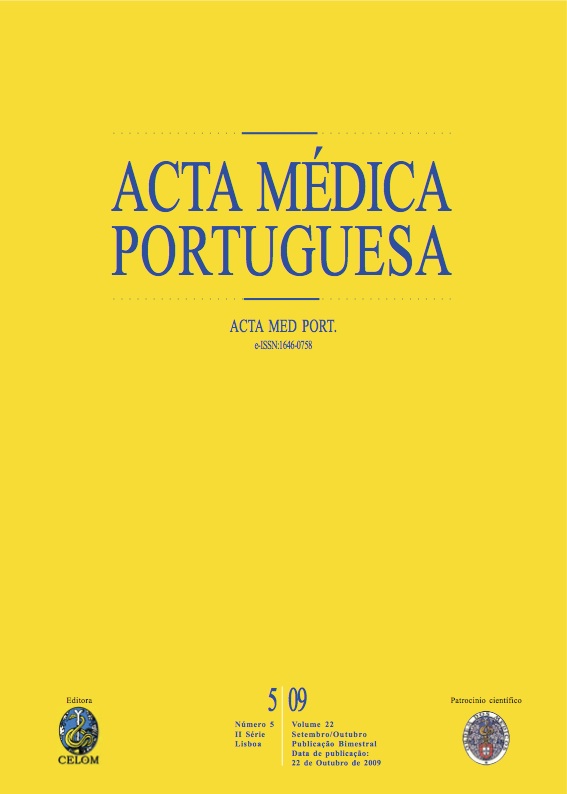Recommendations for diagnosis, treatment and monitoring of chronic myeloid leukemia.
DOI:
https://doi.org/10.20344/amp.1720Abstract
Chronic Myeloid Leukemia (CML) is a clonal stem cell disease characterized by the expression of the fusion protein bcr-abl1, which has deregulated tirosine-kinase activity. Tyrosine kinase inhibitors (TKIs), and in particular imatinib, introduced fundamental changes in the treatment of CML, becoming, in most cases, the first-line treatment of choice in the chronic phase of this disease. Compared to other available therapies imatinib results in a marked increase in overall survival, tolerability and quality of life. The introduction of second generation TKI, with increased potency against bcr-abl1, expanded the number of therapeutic options for this disease and offers an alternative for patients resistant or intolerant to imatinib or who have progressed to the accelerated phase under this therapy. In order to achieve optimal outcomes, TKI therapy must be managed rigorously, requiring a careful monitoring of treatment response in pre-established time periods, thus permitting disease evaluation and safe decision of the most adequate option. Despite the definition of the criteria for imatinib treatment response, the therapeutic strategies to adopt according to the responses obtained are less clear. The objective of this paper is to review the criteria for CML diagnosis, treatment and monitoring, with recommendations as to the most adequate therapeutic choice according to the response to TKI therapy. The paper also focuses the current lines of investigation and debate areas that in the short term can significantly change the therapeutic scenario in this disease. These recommendations, supported by published scientific evidence and by the clinical practice of the expert panel involved in their elaboration, may constitute an important instrument for a better understanding and standardisation of the treatment and monitoring of CML in Portugal.Downloads
Downloads
How to Cite
Issue
Section
License
All the articles published in the AMP are open access and comply with the requirements of funding agencies or academic institutions. The AMP is governed by the terms of the Creative Commons ‘Attribution – Non-Commercial Use - (CC-BY-NC)’ license, regarding the use by third parties.
It is the author’s responsibility to obtain approval for the reproduction of figures, tables, etc. from other publications.
Upon acceptance of an article for publication, the authors will be asked to complete the ICMJE “Copyright Liability and Copyright Sharing Statement “(http://www.actamedicaportuguesa.com/info/AMP-NormasPublicacao.pdf) and the “Declaration of Potential Conflicts of Interest” (http:// www.icmje.org/conflicts-of-interest). An e-mail will be sent to the corresponding author to acknowledge receipt of the manuscript.
After publication, the authors are authorised to make their articles available in repositories of their institutions of origin, as long as they always mention where they were published and according to the Creative Commons license.









